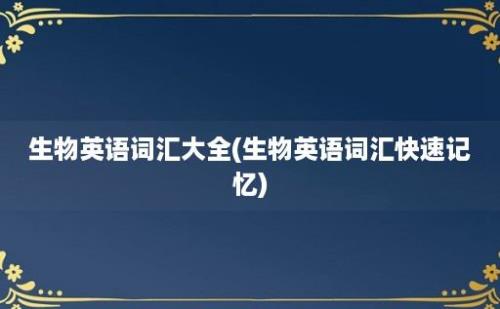生物英语词汇大全(生物英语词汇快速记忆)
导语:生物英语词汇-Organism

Organism有机体,生物体,微生物 An organism is an animal or plant, especially one that is so small that you cannot see it without using a microscope. In biology, an organism (from Greek: ὀργανισμός, organismos) is any organic, living system that functions as an individual entity. All organisms are composed of cells (cell theory).Organisms are classified by taxonomy into groups such as multicellular animals, plants, and fungi; or unicellular microorganisms such as protists, bacteria, and archaea.All types of organisms are capable of reproduction, growth and development, maintenance, and some degree of response to stimuli. Humans, squids, mushrooms, and vascular plants are examples of multicellular organisms that differentiate specialized tissues and organs during development. 在生物学中,有机体是任何作为个体实体发挥作用的有机生命系统。所有生物体都是由细胞组成(细胞学说)。生物体按分类学可分为包括动物、植物和真菌在内的多细胞生物以及原生生物、细菌和古菌在内的单细胞微生物。所有类型的生物体都能繁殖、生长发育、自我维护,且对刺激有一定程度的反应。人类、乌贼、蘑菇和维管植物是多细胞生物的例子,它们在发育过程中都分化出了特定的组织和器官。
organ: a part of the body that has a particular purpose, such as the heart or the brain; part of a plant with a particular purpose (人体或动植物的)器官
免责声明:本文由原创用户编辑投稿,若来源犯您的合法权益,请与我们取得联系,我们更正修改。2023年04月08日由小余整理编辑!